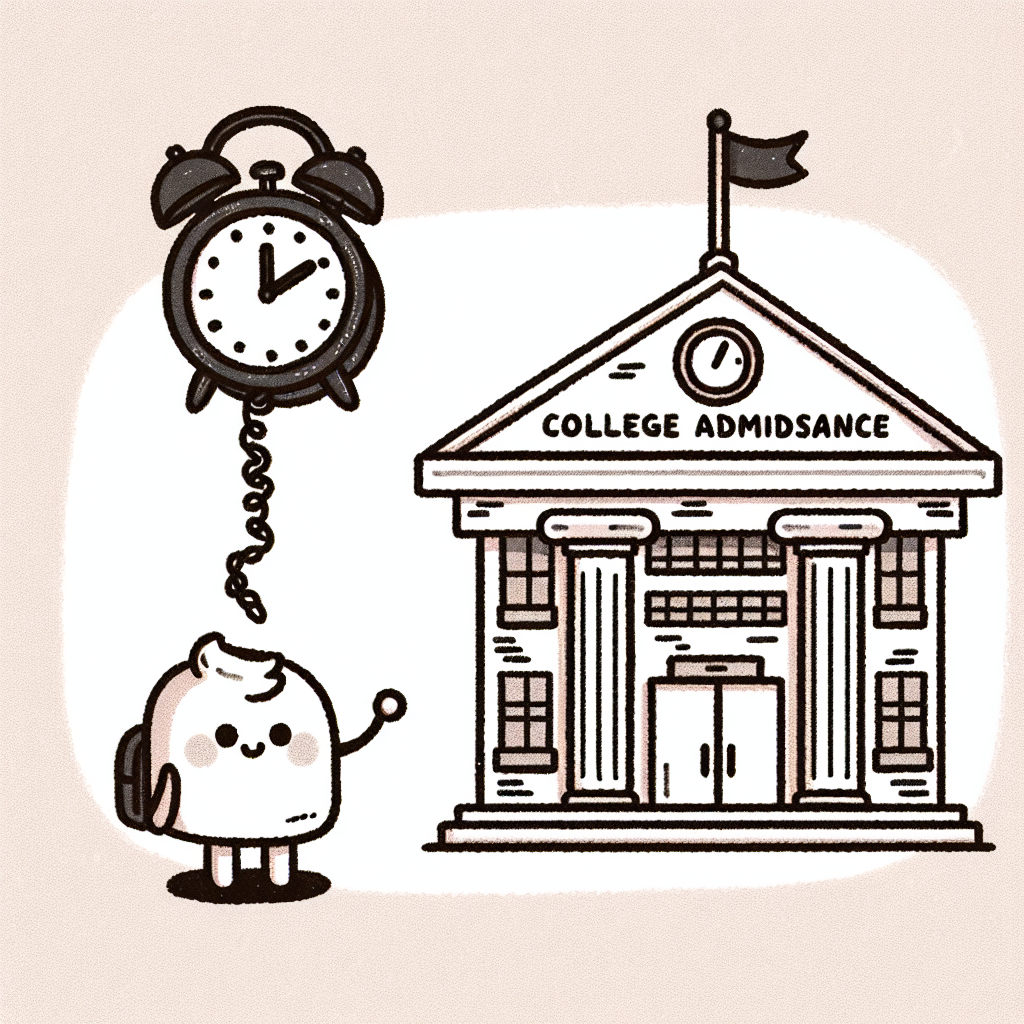Introduction
The college admissions process can be complex, with many students and parents unsure of which factors truly influence acceptance decisions. Academic performance, standardized test scores, extracurricular involvement, and personal essays are widely acknowledged as key components. However, one common question remains: do colleges look at attendance?
There's a persistent myth that colleges routinely review high school attendance records as part of the admissions process. In reality, most colleges focus primarily on academic transcripts rather than detailed attendance logs. Still, chronic absenteeism can affect grades and teacher recommendations, indirectly impacting a student's application.
Understanding how attendance interacts with academic and behavioral records is important. Consistent attendance often correlates with strong academic performance and positive relationships with educators—factors that can enhance a college application. While attendance alone may not be a formal criterion, its influence on other application components makes it relevant in the broader admissions landscape.

Attendance as an Admissions Factor
✅ A Marker of Responsibility and Maturity
Colleges may interpret consistent high school attendance as a demonstration of responsibility, time management, and dedication to academics. A strong attendance record suggests that a student can reliably meet obligations and maintain focus over time. According to the California Learning Resource Network, attendance is viewed as a key indicator of responsibility and commitment to education.
🧾 Attendance in Disciplinary Records
Attendance issues are often recorded in a student's disciplinary record, which many colleges review during the admissions process. A report from Inside Higher Ed found that 75% of colleges collect disciplinary records, and 89% of those institutions use that data in their admissions decisions. Excessive unexcused absences or truancy may negatively affect a student’s profile, reflecting poorly on their dependability and commitment.
🎯 Varies by Institution
While attendance can play a role in the admissions process, the weight given to it varies by institution. Some colleges prioritize GPA, standardized test scores, or extracurricular activities more heavily than attendance records. As noted by College Raptor, attendance is considered part of a student’s academic profile, but its significance differs across schools.

Impact of Attendance on Academic Performance
📉 Poor Attendance = Lower Grades
When exploring the question, do colleges look at attendance, it's important to understand how attendance directly affects academic performance. Frequent absences often mean students miss key lectures, discussions, and assignments. This can reduce comprehension of the material, resulting in lower test scores and incomplete coursework. Over time, these missed opportunities can lead to a decline in overall GPA—a major factor considered in college admissions.
📚 Academic Engagement and Learning Outcomes
Regular attendance supports academic engagement. Being present in class allows students to participate in discussions, ask questions, and collaborate with peers—activities that enhance understanding and retention. Chronic absenteeism, on the other hand, can indicate a lack of interest or larger personal challenges. This disengagement may not only affect grades but also the student’s ability to develop critical thinking and problem-solving skills, all of which are vital in higher education contexts.
Colleges may not always see attendance records directly, but they do see the broader academic picture, which attendance significantly influences.

Attendance and Long-Term Academic Trajectory
🎓 Correlation with College Enrollment and Completion
When considering the question do colleges look at attendance, it's important to examine how attendance impacts a student's broader academic future. Research from the Regional Educational Laboratory Appalachia shows that students who maintain consistent attendance in high school are more likely to both enroll in and complete college. This consistency builds academic discipline, a trait that supports long-term educational achievement.
🧠 Early Habits Predict Future Success
A study published on ArXiv found a strong correlation between early class attendance and academic performance. These attendance habits, often developed during high school, tend to persist into college, directly influencing GPA and retention rates. This reinforces why colleges may consider attendance as a factor—not only as a reflection of past behavior but also as a predictor of future success.

Situations Where Attendance Matters More
🚩 When Attendance Affects Grades
Colleges primarily evaluate academic performance through GPA and coursework rigor. If poor attendance causes a significant drop in grades, it may raise concerns. Admissions officers often look for trends and patterns—so if a student's academic decline coincides with frequent absences, it could prompt further scrutiny. In contextual admissions, where schools assess students relative to their circumstances, these patterns can be especially important.
📄 When Disciplinary Action Is Taken
Absenteeism that results in disciplinary action—such as suspensions, truancy citations, or referrals—can appear in a student’s school report. These records are often included in the materials submitted to colleges and can impact the holistic review process. In competitive admissions environments, a history of discipline related to attendance can be a disadvantage.
📝 Letters of Recommendation and Counselor Reports
Counselors and teachers writing letters of recommendation may comment on a student’s attendance. Consistently poor attendance that affects classroom engagement or academic progress might be noted. On the other hand, positive attendance habits—especially if they reflect improvement or resilience—can also be highlighted to support a student’s application. In both cases, such mentions help colleges understand the context behind a student’s academic record and behavior.

Mitigating the Impact of Poor Attendance
🛠️ Providing Context in Applications
When considering the question, do colleges look at attendance, it's important to know that context matters. Applicants can use the Additional Information section of college applications to explain legitimate reasons for past absences. Medical conditions, family emergencies, or other personal challenges can be clarified here. This gives admissions officers a fuller picture of the circumstances behind inconsistent attendance.
It's also helpful to show evidence of improvement. If attendance has gotten better over time, be sure to highlight that. Demonstrating accountability and growth can help colleges see that previous issues have been resolved.
📈 Showing Resilience and Improvement
Colleges often look for signs of resilience and maturity. If there's a noticeable upward trend in attendance, it may reflect personal development and stronger time management skills. Applicants should use their essays or additional statements to explain how they addressed their attendance issues and what they learned from the experience.
In the context of whether do colleges look at attendance, showing that you’ve overcome challenges and taken steps to improve can make a meaningful difference in how your application is viewed.

Attendance in Holistic Admissions
In a holistic admissions process, colleges evaluate applicants using a variety of factors beyond test scores and GPA. These include the rigor of coursework, personal essays, recommendation letters, and extracurricular involvement. So, do colleges look at attendance? While it's not always a primary criterion, attendance can play a role in shaping an applicant's overall profile.
Attendance may serve as a supporting detail in the context of other application materials. For example, if a student is on the borderline for admission, a strong or weak attendance record might tip the scale. Consistent attendance can reinforce a narrative of reliability and responsibility, which aligns with the values some institutions prioritize.
Colleges that emphasize character and long-term commitment often view attendance as a reflection of a student's personal discipline. Regular attendance may signal to admissions officers that the applicant takes their responsibilities seriously and is likely to be a dependable member of the campus community. Conversely, frequent absences without explanation might raise concerns, especially if they align with other red flags in the application.
Ultimately, while not always a standalone factor, attendance can subtly influence how an applicant is perceived in a holistic review process.

The Role of Attendance in College Preparation
⏰ Building College-Ready Habits
Regular attendance plays a key role in developing habits that are essential for success in college. By consistently showing up to class, students learn time management, as they must plan their schedules around academic commitments. It also fosters accountability, requiring students to take ownership of their responsibilities. Over time, these patterns build academic resilience, helping students manage workloads, stay engaged, and recover from setbacks—all critical skills for navigating the demands of higher education.
📊 Predictive Value for College Success
High school attendance is a strong indicator of future performance in college. Students who maintain consistent attendance often demonstrate the discipline and commitment needed to persist through a college program. Research shows a correlation between high school attendance and higher college retention and graduation rates, suggesting that the habits formed in secondary education can directly influence outcomes at the postsecondary level. Therefore, while colleges may not explicitly list attendance as an admission criterion, they often value the qualities that regular attendance helps develop. This connection supports the broader question: do colleges look at attendance—not always directly, but certainly in terms of the behaviors it reflects.

Conclusion
While attendance may not always be an explicit criterion in college admissions, it plays a significant role in shaping a student’s academic performance and overall personal narrative. Admissions officers often evaluate applicants holistically, which means that poor attendance can indirectly impact a student's profile through lower grades, missed opportunities for participation, and weaker teacher recommendations.
Conversely, strong attendance habits demonstrate responsibility, commitment, and time management—qualities that colleges value. Maintaining consistent attendance can contribute to better academic outcomes and help students build a positive reputation with educators, both of which support a stronger college application.
In the broader context of the question—do colleges look at attendance—the answer is nuanced. While not always directly assessed, attendance can enhance or detract from a student’s overall presentation. Forming consistent attendance habits is not only beneficial for college admissions but also lays the groundwork for long-term academic and professional success.

References
- California Learning Resource Network — Discusses whether college admissions officers factor in high school attendance and how it can reflect student responsibility.
- Inside Higher Ed — Explores the broader context of how colleges consider aspects of a student’s behavioral record, including attendance, in admissions decisions.
- College Raptor — Provides a direct answer to the question “do colleges look at attendance” and outlines scenarios where attendance can impact admissions.
- Regional Educational Laboratory Appalachia — Offers research-based insights into the correlation between attendance and academic outcomes, which may indirectly influence college admissions.
- ArXiv Study — Presents data-driven findings on how behavioral indicators like attendance can be predictive of academic performance and long-term success.







.png)






